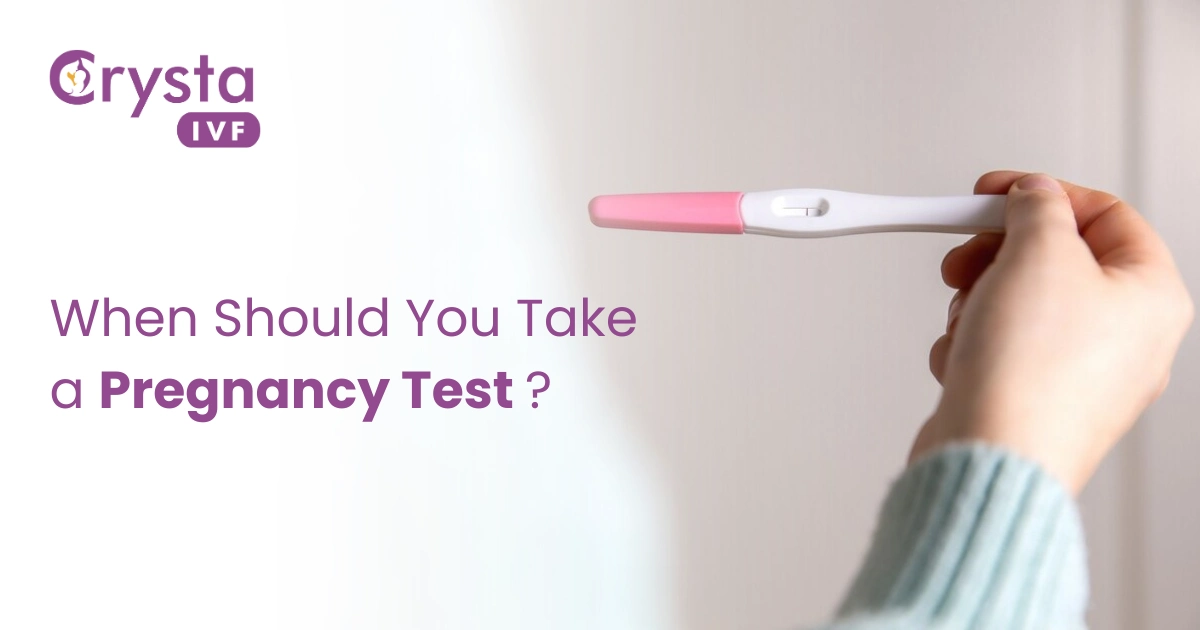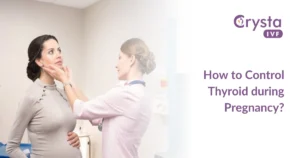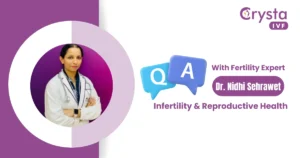Though it appears simple, the pregnancy test can create a rollercoaster of emotions when those two red lines stand out. As a result, It becomes apparent that your life is going to change, and your little munchkin is coming soon.
However, sometimes all the signs that you consider alarming, such as missing your periods, can give the false impression of pregnancy and burst your bubble of all-time happiness.
So, what should be done to overcome these misunderstandings? What should be done to avoid the challenges that come with determining whether you are pregnant or not?
The answer is simple yet intuitive; all you need is to consult the best gynecologist in Delhi. And try to know the tentative period in which you can take a pregnancy test to expect accurate results, whether they are positive or negative.
Hence, in this blog, we will give you a comprehensive analysis of how pregnancy tests work and how soon you can take one to determine if you are pregnant.
When to take a pregnancy test?
Some tests are known to be very sensitive and can find out your pregnancy before your period is due.
However, it is still suggested to wait until at least the first day of a missed period to take any test. To expect the most accurate test results, take the test a week after your period gets missed.
The reason you shouldn’t take a test too soon is that the pregnancy detection test works by measuring HCG levels (a hormone that is only detected when you are pregnant).
Your body only releases hCG if a fertilized egg or embryo gets attached to the uterus during implantation. The implantation usually happens 10 days after conception when the sperm fertilizes the egg.
Traces of hCG can be found as early as 6 days after implantation, and your body takes around 7–10 days to produce enough hCG to confirm if you are pregnant by getting a positive result on a pregnancy test.
However, if you are going through a hormonal crisis and have an irregular menstrual cycle, you must be unsure about your expected period date. In this condition, it is recommended to wait at least 21 days after having unprotected sexual intercourse.
If you have an irregular menstrual cycle and are unsure about the expected period date? Wait for at least 21 days after having unprotected sex or undergoing an IVF treatment before taking the test.
Moreover, being excited about your little munchkin is fine, but taking the test too early may lead to inaccurate results.
So do not hurry up; pregnancy is a beautiful process with ups and downs. It is better to be patient and wait for the appropriate time to conduct your pregnancy test. After all, every good thing comes after a lot of waiting.
Also Read: Understanding Early Pregnancy Detection in IVF: When Can You Expect Positive Results?
How do these pregnancy tests work?
Coming to a conclusion and finding out that you are pregnant is every woman’s dream. It doesn’t matter whether you have been trying to conceive for more than a year, have undergone In-vitro fertilization, or want to know if your birth control went wrong; whatever the reason, a pregnancy test will clear all your doubts and make you the happiest person alive. But ensure you do not take the test too soon because it will only lead to a false result.
You should know that the overall pregnancy test typically tests your urine for the HCG hormone. However, how you test your urine typically depends on your selected kit.
According to various pregnancy test kits, you may have to:
- Position your testing stick in the anticipated urine stream area to ensure it captures your midstream.
- Gather your urine in a cup, then transfer a small amount of the liquid into a designated container using an eyedropper.
- Collect your urine in a cup and submerge a testing stick into the liquid.
However, research says that conducting a pregnancy test at home is 99% effective if you use them correctly and follow the instructions.
When the recommended waiting time has been passed, the test will display your pregnancy results in these ways:
- A plus or minus sign according to your result
- Change in color
- Words alerting “pregnant” or “not pregnant.”
- Two red lines for positive results and one line for negative results
Despite checking your pregnancy, it is also significant to alert the signs that can confirm your pregnancy.
Signs that indicate you are pregnant
The fertility experts recommend some of the signs that alert you are pregnant and need to confirm it via a pregnancy test.
Missed periods
If you do not remember the last time your periods arrived, it may be hard to track your cycle. Generally, a 28-day menstrual cycle is typical, but it can vary from 24 to 38 days. Moreover, there can be other reasons for missing your periods, such as PCOS, changes in birth control, stress, and certain medical conditions.
Cramps
Embryo implantation can lead to a similar experience as menstrual cramps. In early pregnancy, you may feel this discomfort and believe you are pregnant or your period is on the way, but in reality, it never comes. In this condition, it is better to take a pregnancy test to clear all your doubts.
Sore breasts
As pregnancy progresses, your body starts to produce more and more estrogen and progesterone. Due to this, your breasts begin to appear tender and bigger than before due to increased blood flow. It is also common during your period. So, if you have sore breasts and it is not your period, consider taking a pregnancy test.
Frequent urination
During pregnancy, your body experiences a rise in body fluids and an improvisation of kidney functions. Additionally, the expanding uterus pressurizes your bladder, leading to an increased frequency of urination for most women during the initial weeks of pregnancy. So, to make the right decision on time, it is best to conduct your pregnancy test.
Exhaustion
This can be an early sign of pregnancy. Pregnancy fatigue can start as soon as after the first week of conception. So, if you are feeling exhausted too often, make sure you conduct a pregnancy test at the earliest.
Nausea
Morning sickness can be a good sign. It can indicate that you are pregnant. Also, research says that women who often get morning sickness have lower chances of miscarriage. Therefore, if you are feeling nauseous too often, it is time to take a pregnancy test.
Food aversions
If you are expecting, your taste might change from regular, or you may have frequent appetite changes. Though the reason is not clear, many researchers still believe that this occurs due to hormonal changes and to protect the baby from harmful substances.
Your birth control method failed anyway
Birth control pills and condoms do not provide 100% protection from pregnancy. Hence, in certain cases, your birth control method might also fail to work, but rather than keep guessing, it is best to take some time for yourself and conduct a pregnancy test.
Takeaway
Pregnancy is the birth of a new child and a new life of a woman: her transition to becoming a mother. But in this exciting journey, taking even a single step with caution is essential, as is determining when it is the right time to take a pregnancy test. Testing timing can often give you false results and make you worry for too long.
For the most accurate test results, take the test after you believe you have missed your period. Plan your testing during your first-morning bathroom visit, or hold it for several hours to increase the concentration of the hCG hormone measured in a pregnancy test.
Early pregnancy testing has its benefits! It is crucial to ensure you receive appropriate care for yourself and, if applicable, prenatal care for your baby. If the test result is positive, it should be your priority to consult a top-notch gynecologist in Delhi promptly to discuss your options and potential next steps after your natural or IVF pregnancy.
Frequently Asked Questions
Can you detect pregnancy after 5 days or 2 weeks?
Generally, the pregnancy is not detected after 5 days. However, if you have an irregular menstruation cycle and do not know when your period is due, it is best to wait until 21 days after having unprotected sexual intercourse.
What are the signs of early pregnancy?
Early pregnancy can bring a variety of symptoms, including but not limited to morning sickness, fatigue, mood swings, constipation, bloating, implantation bleeding, food cravings, swollen or tender breasts, etc.
To what extent can we rely on at-home pregnancy tests for accuracy?
At-home pregnancy tests are 99% accurate as long as you do not take the test too soon and follow the instructions carefully.




